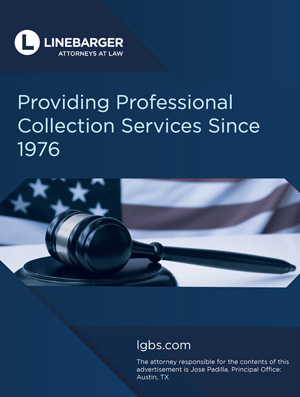Danna Quinn, director of human resources for the Judicial Branch of Arizona in Maricopa County, is retiring after a career of over 32 years with the branch. We sat down together to reflect for a bit on her career journey in court administration, and her advice for early career professionals.
Tell me about your journey and career path in court administration.
I started in the administrative services side of juvenile probation for Maricopa County in 1987. I had a lot of variety in my duties, including project management and facilities management, as well as managing the adoptions and CASA units. I wore multiple hats for many years. I started on a human-resources path in 1992/1993 and ultimately became the HR director for juvenile probation. In January 2004, the presiding judge at the time decided to consolidate human resources into one department for the entire judicial branch, rather than each department having their own HR services. I served as a manager for several years before ultimately becoming the assistant HR director.
In 2010 I took a sort of “detour” and was appointed the regional courts administrator for the superior court, where I was responsible for a variety of things for the three regional locations of the superior court. I served in that position until 2013, when I was appointed as the director of human resources for the judicial branch.
What would you say has been the biggest surprise of your career?
I would say all the detours that I took to get to the position that I ultimately wanted, taking the unexpected opportunities that came along, and making the most of those learning opportunities.
Is there anyone you have looked up to or who has served as a mentor to you in your career?
Early on in my career, my boss in juvenile probation, Joyce Costanzo, the deputy chief, was a mentor to me. She worked on the probation side, but ended up managing administrative services. We still talk to this day. I also really appreciate the people who have given me opportunities in my career, such as Marcus Reinkensmeyer, who appointed me as the regional courts administrator, and Ray Billotte, who appointed me as the director of human resources for the judicial branch.
What has been the biggest change that you’ve seen in the profession of court administration?
From my perspective, the biggest impact has been the competition for top talent. The work of court employees has become more complex, and people need a more diverse set of skills to be successful on the job. There is more competition for the people who have those skill sets.
What do you think courts can do to attract and keep people in court administration?
It’s currently a challenging climate for sure. The skill sets we look for that would make people successful in court administration would be valued in other careers and fields. We are challenged by our traditional work environment and can’t necessarily offer the flexibility that somewhere like Google might be able to, although we can offer some flexibility. I think the way that we attract and retain talent in court administration is to appeal to people’s sense of purpose and their desire to have careers where they can make a difference. That is important to the upcoming generations (Millennials and the iGeneration).
If you could offer one piece of advice to someone just starting out in court administration, what would it be?
I think it is a good idea to never say no to a chance to learn something new and expand your horizons. Take every opportunity to learn everything you can, even if you don’t think it is necessary for your current position or where you want to go in your career. Take the opportunity to serve on a committee outside of your area of expertise. Embrace it as a learning opportunity; all will be valuable no matter what you do going forward.
A Note from the Editor
I feel very fortunate to have been able to work for and with Danna over the last 12 years. I think her advice is extremely valuable, especially for those who are early career professionals like me. Danna’s career is an example of the great and unexpected ways a career in court administration can evolve, if you are willing to stretch yourself and take opportunities as they present themselves. With the changing demands of court administration as a profession, we must be more agile and more flexible to meet the challenges and demands that we are presented with from all angles. Having a broad experience base can only serve us well.
I would like to sincerely thank Danna for the opportunity to interview her, and I wish her the best for a wonderful retirement.
ABOUT THE EDITOR
 Nicole Zoe Garcia is the director of jury services for the Superior Court of Arizona in Maricopa County. Garcia has been with Superior Court of Arizona in Maricopa County for more than 12 years and holds a bachelor’s degree from the University of Arizona and a Master of Public Administration from Arizona State University. She is also a 2014 Graduate Fellow of the Institute for Court Management.
Nicole Zoe Garcia is the director of jury services for the Superior Court of Arizona in Maricopa County. Garcia has been with Superior Court of Arizona in Maricopa County for more than 12 years and holds a bachelor’s degree from the University of Arizona and a Master of Public Administration from Arizona State University. She is also a 2014 Graduate Fellow of the Institute for Court Management.



